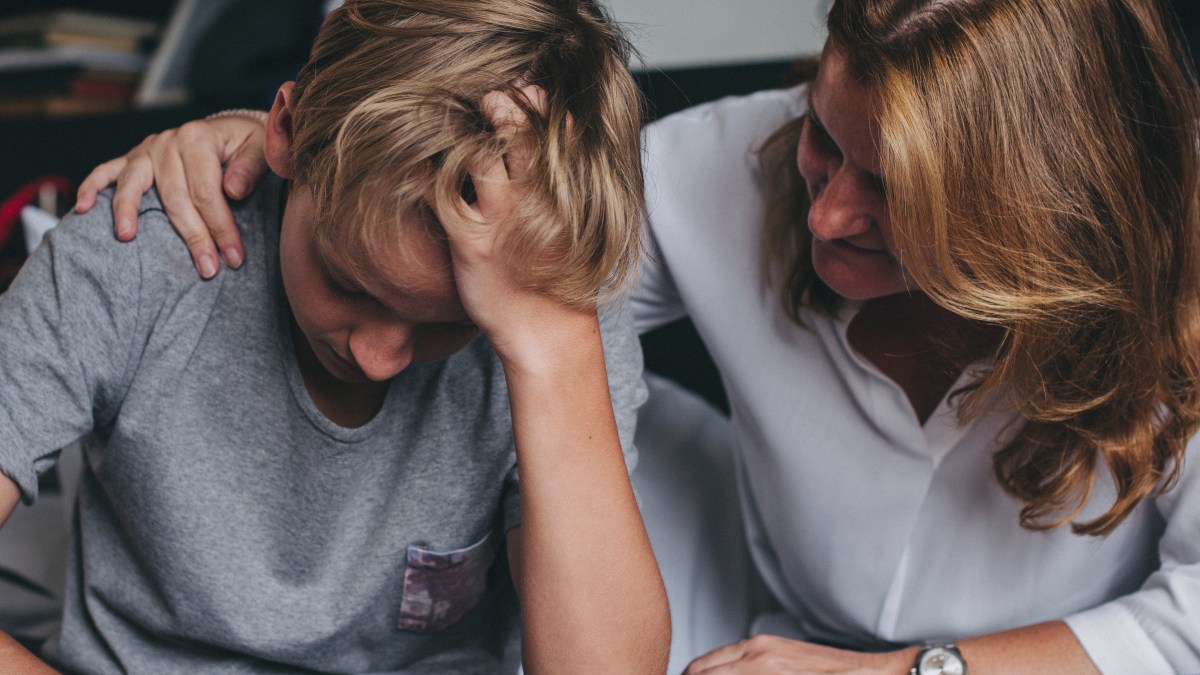I wasn’t surprised by the children’s commissioner report out today, calling for urgent action to tackle waiting lists in mental health care for children.
Ten years ago, I received a call from my son Thomas’s* reception teacher. They asked me to come in and said he was showing some developmental delays, and autistic traits. Within six months Tom, who is now 15, was diagnosed with autism and ADD (attention deficit disorder) and medicated.
Parental guilt: Is it just mums? Do dads have it too? Join parenting author Zoe Blaskey, columnist Claire Cohen and Times Radio presenter Geoff Norcott at 8pm on Tuesday, May 20 for a lively, honest discussion – the first live, virtual event in our Parent Talks series. Sign up here to join for free
Fast forward to his younger brother William*, and he has been languishing on a waiting list for six years.
Unlike his older brother, William has always excelled academically. But by the age of seven his teachers noticed various issues: he was impulsive, quick to anger and unable to self-regulate — all classic traits of ADHD (attention-deficit hyperactivity disorder). Unlike Tom, who isn’t hyperactive but struggles with concentration and has a low social battery, William bounced around the classroom manically.
The school referred him to CAMHS (child and adolescent mental health services) to be assessed for ADHD in November 2021. The school could see how much I was struggling and sent CAMHS an email each week asking where he was on the waiting list. Despite this, it took until October 2024 for William to be diagnosed with ADHD. By then he was in secondary school.
The next step was to get him medicated. I had done a huge amount of research after Thomas’s diagnosis, and I knew that medicating William would be his best chance of being able to focus at school and achieve his potential. But after his diagnosis, he seemed to drop out of the system: the clinic who diagnosed him wrote to our GP, but our GP had no record of it and neither did CAMHS. Somebody from CAMHS told me that to get a prescription we needed a referral to a paediatrician at our local hospital. My GP said this was wrong.
Back and forth I went, bounced between departments and doctors, chasing up appointments, only to find we had been pushed even further down an already long list. At the moment we’ve been told it will be 24 months until William can be medicated.
• A parents’ guide to happier children: help and advice from the experts
I have friends who are paying in the region of £300 to £500 a month for mental health prescriptions for their children. Others reached various crisis points — with issues like autism, ADHD, anxiety, suicidal thoughts, self-harm, and eating disorders — and paid £2,000 for private assessments, often going into their savings or borrowing from grandparents. I read a study in lockdown that found four in ten GPs suggest parents of children with mental health problems pay for private care.
But this isn’t an option for me. I’m a single parent, and I simply don’t earn enough. So, I see friends and classmates of William’s, who are also struggling, jump ahead of him in terms of medication or support at school because their parents can afford the thousands of pounds it costs to get it. Most of the NHS experts I see — and cry in front of — ask gently if I could just go private, but I can’t. I’ve also heard that the reason people like me suddenly drop down a waiting list by six months is because some parents straddle both the NHS and the private system, and then shift over to the NHS, which pushes those beneath them on the list even further down.
The CAMHS system is also notoriously tricky to navigate and — I suspect, a little like HM Revenue & Customs — designed to be that way to shake people off.
• Why are our kids so sad? What parents can do to help
But I can’t be shaken off because William is still struggling. Now in senior school, he’s constantly getting detentions, being sent out of class for shouting out or not sitting still, and all the time struggling with friendships and missing out on more of his education. He’s bright, but he’s falling behind, and falling through the cracks of proper care. His self-esteem is rock bottom, and our family life is strained.
Something Rachel de Souza, the children’s commissioner for England, said really stuck out to me. She said: “The numbers in this report are staggering — but these are not numbers, these are real children.” As a parent, you do everything you can to provide your children with what they need, whether that’s food, warmth, or love. So, when your child struggles with their mental health, and there’s nothing you can do to help them, it feels devastating. Childhood is short and spending so much of it languishing on a list waiting for the right care simply isn’t OK.
*Names have been changed
As told to Maria Lally
